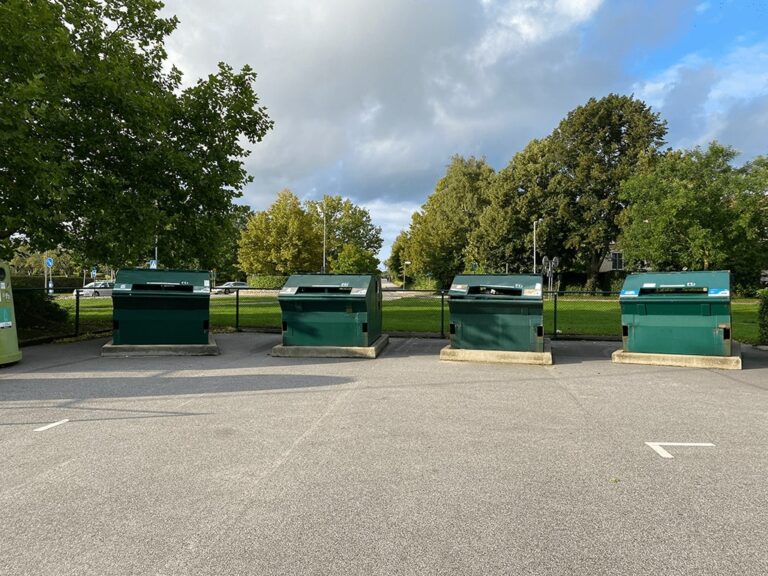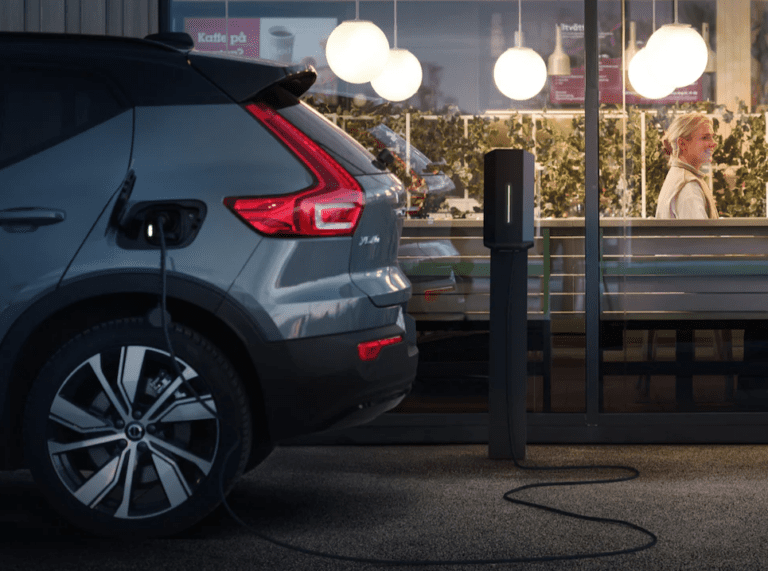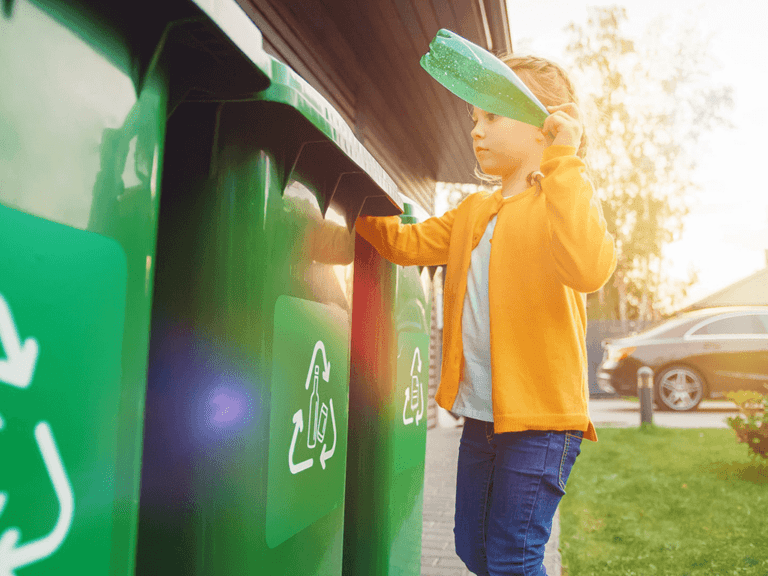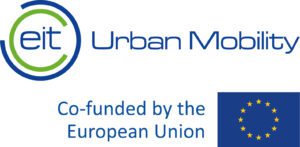In the past, we've sometimes been met with the phrase "I don't have time to start working smarter just today." Often we have asked ourselves, do we have time to wait until tomorrow?
But now a shift is taking place, a tidal wave of positive forces is emerging, which in recent years have built up in the market, reinforcing each other. A snowball effect, where the market is moving from viewing sustainability as an alibi activity to a strategic, natural and important part of the business, creating tangible business benefits and value.
One example is the long-awaited, and hardly overestimated, impact on the environmental footprint of increased investment in plastic recycling, where we are seeing several new and concrete initiatives, ranging from the labelling of plastic packaging for more efficient sorting to the construction of the world's largest plastic sorting plant in our own little Motala.
Some figures: 1kg of plastic means about 2.7kg CO2 eq, and Sweden sorts out about 1.6 Megatons annually. This gives a total footprint for the collected plastic of 4.3 Megatons annually.
Furthermore, several projects Bintel is involved in show that the amount of separated plastic can be increased in many waste applications. For example, in Recycling room, which is often a neglected part of the waste industry, Bintel's transformation process demonstrates a reduction of about 4 tonnes of CO2 per Recycling room. With hundreds of thousands of Recycling room in Sweden alone, the potential for further relief for our planet from that part of the industry alone is enormous.
The driving forces, which were once single, pale stars in the sky, have now become more numerous and shine much brighter. So what are these market forces that are causing the positive trend to suddenly become so clear?
Market forces
It can be difficult to see which forces occur when, and which forces are an effect of other forces. What is the beginning and end of the rope. Regardless, these forces grow stronger, they reinforce each other, and lately there has been an avalanche of this.
The state and packaging responsibility
Responsibility for collecting packaging is shifted from producers to municipalities. This will drive an increase in doorstep collection of several new fractions. More concretely, it will mean that more Recycling room will be fully separated, more waste collection points will be built and responsibility for these will be placed on municipal operations. Activities that often have a very clear environmental focus.

"This is something that Swedish Waste Management Association has been working towards for a long time and will provide a good opportunity to achieve the recycling targets." Tony Clark, CEO of Swedish Waste Management Association.
This shift in responsibility, combined with the fact that municipal operations are often strapped for resources, we at Bintel believe is one of the reasons why we are seeing a meteoric rise in municipalities wanting to use data to evaluate and understand their waste streams.
Sustainability as a strategic business tool
Sustainability has gone from being a nice to have to a must have. From being the feferonin you pick off, to being the falafel roll itself. Nowadays, sustainability is inflated in most businesses, as it is recognised as something that drives sales, increases competitiveness and boosts profitability for companies around the world. Circularity and getting ecosystems to work is a key part of sustainability. At Bintel, we are working to increase circularity from businesses and properties' waste streams. We do this by helping businesses achieve better source separation. As more waste can be recycled, the circularity of the waste stream increases. As a result, the CO2 impact is reduced and sustainability increased. So what's so difficult?
It lacks knowledge, the right structure and the right behaviour.
Bintel leans towards the UN's SDGs, thinking that if we help the world become a better place, it's likely to be a good deal for everyone involved. That's why our entire company is built around sustainability and helping the industry make the digital transition.
Thanks to the external focus on sustainability, this work has been transformed into tangible business value, a necessity in the market-driven society in which we live.
"To continue to be successful, we need to grow profitably. So instead of investing in a shrinking business, we chose to invest in the future - electrically and online. We are fully focused on becoming a leader in the rapidly growing premium electric car segment." says Håkan Samuelsson, CEO of Volvo Cars

The transformation of the passenger car industry is a clear example of how the outside world is making demands on its operations and its CO2-footprint and how this is driving the agenda for the big companies.
At Bintel, we are experiencing this change through increased demand for data and closer collaboration between us and major players in the market such as Ragnsells and PreZero. This is because data can often be transformed into insights for increased sustainability, and then in the next step increased competitiveness and business value.
2030 Agenda
Another driver towards a more sustainable society is the Global Goals adopted by world leaders in 2015. These are goals for environmentally sustainable development to be achieved in all countries of the world by 2030.
For Sweden, this work has contributed to a 35% reduction in greenhouse gases since 1990.
For Sweden specifically, there is an increased focus on what waste reaches the Swedish energy recovery companies. A focus on reducing waste fractions in residual waste that should be recycled, not incinerated. In SYSAV's waste-to-energy plant, for example, the incineration of plastic in residual waste accounts for around 90% of fossil emissions.

"If all households put one less plastic packaging in their residual waste, it would save thousands of tonnes of carbon dioxide emissions a year." Peter Engström, CEO of SYSAV.
The plastic focus is interesting, as historically there has been poor management of the plastic that is actually sorted out of the waste. An important change in Sweden is that the focus on this has been strengthened, and that we are moving towards being able to make much better use of the plastic that is collected for recycling. The number of large sorting plants has doubled in recent years, a competition that is also creating excellence in this part of the Swedish waste industry:
"At Site Zero, we create the conditions for recycling all Swedish plastic packaging in a circular manner - without negative climate impact. We will be the first in the world to do so" Mattias Philipsson, CEO of Svensk Plaståtervinning
The impact in environmental footprint of these initiatives can hardly be overestimated. 1kg of plastic means about 2.7kg of CO2 -eq, and Sweden sorts out about 1.6 megatons annually. This gives a total footprint for the collected plastic of 4.3 Megatons annually.
Furthermore, several projects Bintel is involved in show that the amount of separated plastic can be increased in many waste applications. For example, in Recycling room, which is often a neglected part of the waste industry, Bintel's transformation process demonstrates a reduction of about 4 tonnes of CO2 per Recycling room. With hundreds of thousands of Recycling room in Sweden alone, the potential for further relief for our planet from this part of the industry alone is enormous.
Technological development and digitisation trends
The technological leap in IoT in recent years has been an enabler of digitisation in many areas, and for some areas this technological shift has been a fundamental enabler and catalyst. One such sector is the waste industry.
Previous technologies have been too energy-intensive and expensive, making it difficult to recoup the cost of the projects. It has only been possible to address a vanishingly small part of the industry. With the new wave of communication solutions now available on the market, signals can be sent using relatively cheap and low-power technology. This opens the door to a total digitalisation of the industry.

We are seeing this as local authorities move from smaller installations to very widespread adoption across their entire stock. This is because the data gives a clearer picture of where environmental interventions should be deployed for the fastest and best measurable impact. Examples of this are Höganäshem, where all Recycling room are connected to reduce the environmental impact, and Växjö, where several hundred Recycling room are connected to improve the efficiency of waste collection.
"Quite easy to pinpoint the problem in the environmental houses, now that we can see the waste situation almost in real time", Anders Nordberg, Head of Housing Höganäshem
The ball is rolling
This is where the change is happening. We can see this most clearly in the fact that we are experiencing a much faster transformation than before. People are taking responsibility beyond their limits and sustainability has gone from being a relatively uninteresting area to a hot priority in everyday life and operations.
For the waste industry specifically, the market forces described above have raised interest in digitisation and the use of data. At Bintel, we are experiencing this through an increase in customer numbers of over 300% in 2 years and customers moving from trying to understand what data can do for them, to implementing it in their operations to achieve their environmental goals.
Previous technologies have been too energy-intensive and expensive, making it difficult to recoup the cost of the projects. With the new wave of communication solutions now available on the market, signals can be sent using relatively cheap and low-power technology. This opens the door to the total digitalisation of the industry.
Finally: money-money-money
It has historically been too cheap not to engage with your environmental footprint. In the waste industry, the collection of unsorted waste has been cheaply priced; there has been no financial incentive to be climate smart. It has relied on the goodwill of the population.
What we are now experiencing is the skyrocketing cost of emission allowances, which has increased more than 10-fold in the last 8 years. We also see that waste tariffs in Sweden are moving towards being environmentally controlled, i.e. that it hurts your wallet when you don't sort your waste.
It's time to jump on the bandwagon and contribute to this development. With us at Bintel, this journey can become a reality, even for your organisation.

